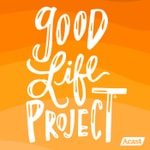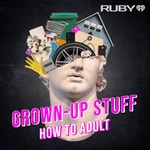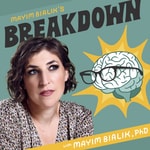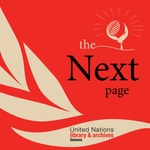Future Tense – Détails, épisodes et analyse
Détails du podcast
Informations techniques et générales issues du flux RSS du podcast.

Future Tense
ABC listen
Fréquence : 1 épisode/7j. Total Éps: 546

Classements récents
Dernières positions dans les classements Apple Podcasts et Spotify.
Apple Podcasts
🇬🇧 Grande Bretagne - societyAndCulture
24/06/2025#95🇬🇧 Grande Bretagne - societyAndCulture
23/06/2025#92🇬🇧 Grande Bretagne - societyAndCulture
22/06/2025#94🇬🇧 Grande Bretagne - societyAndCulture
16/06/2025#89🇬🇧 Grande Bretagne - societyAndCulture
15/06/2025#87🇬🇧 Grande Bretagne - societyAndCulture
13/06/2025#83🇬🇧 Grande Bretagne - societyAndCulture
12/06/2025#70🇬🇧 Grande Bretagne - societyAndCulture
11/06/2025#59🇬🇧 Grande Bretagne - societyAndCulture
10/06/2025#58🇬🇧 Grande Bretagne - societyAndCulture
09/06/2025#55
Spotify
Aucun classement récent disponible
Liens partagés entre épisodes et podcasts
Liens présents dans les descriptions d'épisodes et autres podcasts les utilisant également.
See all- https://yuka.io/en/
59 partages
- https://darksky.org/
38 partages
- https://www.kateraworth.com/
25 partages
- https://www.linkedin.com/in/erikaferszt/
4 partages
Qualité et score du flux RSS
Évaluation technique de la qualité et de la structure du flux RSS.
See allScore global : 38%
Historique des publications
Répartition mensuelle des publications d'épisodes au fil des années.
Reassessing the laws of war; and why progress isn't always a straight line
jeudi 5 juin 2025 • Durée 28:39
The International commitment to ban landmines is wavering. Several European countries are reversing their opposition to using them. The shift comes as disarmament negotiators struggle to regulate the spread of "killer robots" — AI-controlled autonomous weapons. So, is the future of weapons containment and control under threat? And are treaties signed in peace always likely to be vulnerable during times of war?
Guests
Professor Sean Watts — Co-director of the Lieber Institute for Law and Land Warfare, West Point
Dr Barry de Vries — Research fellow, Public International Law, Justus Liebig University Giessen (Germany) Professor Lee Funnell — University of Chicago Law School
Professor Lee Fennell — University of Chicago Law School
Beyond the cloud — storing data in space
jeudi 29 mai 2025 • Durée 29:10
Researchers and corporations are already working to relocate data servers beyond the Earth's atmosphere — on satellites.
Data servers are essential to the functioning of the modern world, but they're both power and water hungry. When they're built, they often meet with community concern and environmental protest.
So, why not build data centres in space where solar energy is abundant? What could possibly go wrong?
Finally, we discuss how artificial intelligence is changing the way we write by providing tools for editing, improving clarity, and suggesting new ideas.
Guests
Dr Domenico Vicinanza — Associate Professor of Intelligent Systems and Data Science, Anglia Ruskin University
Damien Dumestier — Space system architect, Thales Alenia Space
Dr Steven Freeland — Emeritus Professor, Western Sydney University and Professorial Fellow, Bond University
Dr Daniel Murphy — Program Lead, Aerosol Properties and Processes, NOAA Chemical Sciences Laboratory, National Oceanic and Atmospheric Administration (US)
Associate Professor Ritesh Chugh — Information and Communication Technologies, CQ University
Some challenges to conventional economic thinking
jeudi 27 mars 2025 • Durée 28:38
Does modern economic thinking act as a roadblock to change? Economists Kate Raworth and Rainer Kattel certainly think so. The alternatives they propose involve acknowledging limits not just obsessing about growth. And a caution from design and management expert Raz Godelink – it always pays to be skeptical when big business puts on the sustainability suit.
Guests
Kate Raworth – Economist and co-founder of Doughnut Economics Action Lab
Raz Godelnik – Associate Professor of Strategic Design and Management at the School of Design Strategies, Parson's School of Design
Rainer Kattel – Deputy Director and Professor of Innovation and Public Governance, UCL Institute for Innovation and Public Purpose, University College London
Should individuals bear the largest burden for climate action?
dimanche 9 juillet 2023 • Durée 29:08
Exploring new ideas, new approaches, new technologies — the edge of change.
Cory Doctorow: Platform capitalism and the curse of "enshittification"
dimanche 2 juillet 2023 • Durée 29:08
Amazon now feels more like a racket than an open shopping platform; you can't find posts from your friends on Facebook because it's clogged with unsolicited advertising; and Uber no longer seems like a cool, efficient taxi service, it's morphed instead into a global machine for turning gig workers into the new underclass – it's all part of a process Cory Doctorow has dubbed "enshittification". In this feature interview, the Canadian sci-fi author, journalist and digital rights activist explains why the digital world seems so exploitative and tawdry. But he has optimism for how things might be improved in the future.
A new lifeline for local news
dimanche 25 juin 2023 • Durée 29:08
Exploring new ideas, new approaches, new technologies — the edge of change.
How Japan is redefining its military defence
dimanche 18 juin 2023 • Durée 29:00
Japan has long prided itself on its pacifist constitution. The country's future after WW II was defined by Article 9 which famously denounced aggression. But, in recent years security has become a paramount concern with increasing tensions around the status of nearby Taiwan and challenges from neighbouring countries. The Japanese are now renegotiating how best to defend themselves and their interests, while holding true to constitutional restraint. What that could mean for the future of Japan and its allies is of global interest and concern.
Can mining the ocean floor go ahead without regulations?
dimanche 11 juin 2023 • Durée 29:10
Global permission to mine the ocean floor — the International Seabed Authority will soon meet and decide whether or not to allow seabed exploitation, and in what circumstances. We'll hear the arguments both for and against and get some background on this little known, but hugely consequential, international regulatory body. Also, will advanced technology one day make the oceans transparent? And if so, what will that mean for the future of submarines – a technology that relies on stealth and secrecy? And why studying ancient tsunamis could help protect us from future disasters.
Designing buildings for disasters
dimanche 4 juin 2023 • Durée 29:10
How best to build our homes so they can better withstand natural disasters? It's not just about designing for floods or fire, for example, but creating structures to withstand multiple threats. And to cope with any change of temperature on top of that? Many countries are facing an increase in climate-related threats, and they're struggling to cope and adapt. In Australia, a review of the National Construction Code is underway and there are calls for higher minimum standards. Should such a crisis design be made mandatory?
Robots + bees = pollination
dimanche 28 mai 2023 • Durée 29:10
Robobees and building more hives – there's no easy solution to the global decline in bee population numbers and associated problems with pollination. Scientists around the world are seeking a better understanding of bee behaviour and how it can be modified. Their efforts involve using micro robotics to pamper the Queen bee and to improve the insect environment. A mix of the sophisticated and the very simple.









